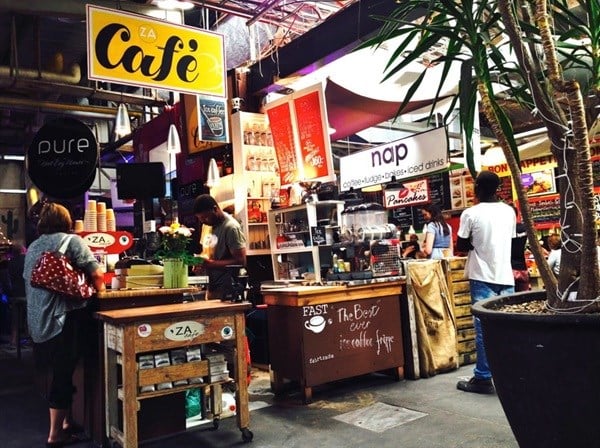The allure of community markets as social shopping hubs
Traditional retail has become one of the most competitive business landscapes, but one of the sectors that appear to continue attracting high numbers of visitors is the local community market.

Lace-up boots from Mint. Image credit: Bay Harbour Market
There's no ignoring the spike in the number of markets that have opened across the country in recent years. Whilst these markets traditionally have only a fraction of the budgets than that of brick-and-mortar malls for infrastructure and marketing, they remain hives of activity and are having an impact on the landscape as their share of the pie grows.
What makes these shopping destinations so popular?
Market goers expect more
“Markets aren’t what they used to be ten years ago,” says Anthony Stroebel, co-owner and founder of Bay Harbour Market in Hout Bay. “Today, markets weigh in heavily when it comes to delivering an experience that is balanced in terms of an awesome day out and excellent shopping. Market goers at the end of the day are very picky and expect more from a market than they would a mall.”
Stroebel continues, “At Bay Harbour Market, our floor space is actually curated. All traders fit together like pieces of a puzzle, thus ensuring that the shopping experience is not only diverse, but also of the highest standard…and, indeed, the journey through the space is planned to the extent that customer ‘moments of joy’ are central from arrival to departure. This is where markets lead – by providing an experience that literally meets the needs and pocket of a broad demographic and, has a range of products that is so diverse, you can shop for anything.”
Bay Harbour Market opened seven years ago. Based in an old fishing factory, the site was transformed to house 125 traders that service 25,000 visitors a month.
“Another factor that makes markets so popular is the all-inclusive energy,” says Stroebel. “Instead of mom dropping off kids at the mall, the whole family is kept busy at the market. And after a good old-fashioned mosey through the traders, there is a whole host of food vendors and live entertainment to take you into the afternoon.”

Image credit: Bay Harbour Market
An authentic experience
“People today want a more authentic – and more sociable – shopping experience and are very conscious of the impact their actions have,” he continues. “At markets, goods are produced locally and it’s always a good feeling to stimulate or contribute to one’s local economy. You will also find that in most cases, the personalities behind the goods produced are there as well, each with their own journey and story to share and that just creates another layer to your purchase. Shopping at markets really is a unique and fulfilling experience. We believe this to be so important that we select our traders as much for their character and ethics as for the quality and uniqueness of their craft.”
Other markets in South Africa that are worth a visit are 1Fox Market Shed (Johannesburg), Hermanuspietersfontein Food & Wine Market (Hermanus), Irene Village Market (Irene), Kamers/Makers (countrywide), Market on Main (Johannesburg), Neighbourgoods Market (Cape Town & Johannesburg) and The Linden Market (Johannesburg).